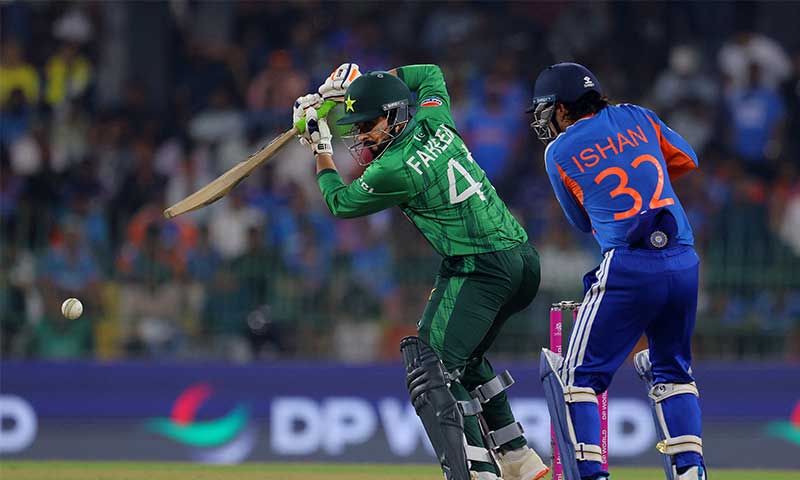- Web Desk
- Feb 16, 2026
Pakistan’s business leaders split on SBP rate cut
Big businesses in Pakistan support the State Bank of Pakistan’s cautious approach to setting the policy rate. However, traders, textile manufacturers and exporters view the SBP’s rate cut as too modest, arguing that it falls short of making credit affordable for those looking to expand production and increase exports.
Despite a sharp drop in inflation to 9.6 per cent year-on-year in August, down from 38pc a year back, in May 2023, the SBP’s Monetary Policy Committee opted for a cautious reduction of the policy rate, lowering it by 200 basis points to 17.5pc from 19.5pc last week. Inflation had been 12.6pc in June this year. The policy rate was held at 22 per cent for a year from June 2023 to May 2024. It was revised down in June to 20.5 and in August to 19.5.
The central bank expressed optimism that the downward inflation trend would continue but cited persistent risks — particularly the uncertainty around the scale and timings of energy tariff adjustments and global commodity price trends — as reasons for its measured approach.
Some market analysts and corporate sector representatives defended the State Bank’s monetary policy stance. Ehsan Malik, CEO, Pakistan Business Council, called the Monetary Policy Committee’s rate cut ‘appropriate’. “The impact on inflation of delayed increase in power tariffs, price hike expected from recent budgetary measures, uncertainties around global fuel and food prices, and the need to achieve a medium-term inflation target of 5-7pc, justifies maintaining a relatively tight monetary policy.
“This approach should help restore macroeconomic stability”, Malik added. “A more aggressive rate cut could jeopardise the current account and potentially weaken the exchange rate. Foreign exchange inflows are still contingent on securing the IMF program. By the time the next MPC meets, there should be greater clarity on the future policy direction”.
Mohammad Sohail, CEO, Topline Securities, addressed the differing views among business leaders on the monetary policy, stating, “Each association has its own perspective and priorities. Personally, I believe that rapidly cutting interest rates while foreign exchange reserves remain weak is unwise. We have seen in the past that low interest rates can strain reserves, putting Pakistan at risk of default”.
Majyd Aziz, a prominent business leader from Karachi, dismissed the demand for a single-digit interest rate under the current conditions as wishful thinking. He remarked, “It’s important to understand that a sharp cut in any sensitive economic indicator can trigger imbalances in the system. Private sector loans, long-term deposits, and government borrowing all need to be taken into account, not just the inflation rate.
“The SBP is wisely adopting a gradual approach to monetary policy, rather than making more drastic cuts for short-term approval. Also, the actual inflation rate may differ from the figure quoted by the government”, he explained.
Khurram Mukhtar, a prominent business leader from Faisalabad, CEO, Sadaqat Limited, and Patron in Chief, Pakistan Textile Exporters Association (PTEA) voiced concerns over the SBP’s priorities. “The reality is that businesses —whether traders, small and medium size enterprises (SMEs), or corporates relying heavily on local financing — are feeling the severe strain of high interest rates. They are pushing for a further 350 basis points reduction in interest rates to ease borrowing costs and improve cash flow in the short term. Inflation, rising energy tariffs, and increasing operating expenses are squeezing margins. Reducing the policy rate to 14pc would still maintain a positive real interest rate” Mukhtar stated.
“In Pakistan’s current economic climate, there is no direct correlation between stability and high interest rates”, he argued. “The recent sharp decline in oil prices should be factored into the equation, as it can help ease inflationary pressures. Persistently high interest rates are only adding to the energy tariff burden on all consumers, trapping the economy in a vicious cycle of rising costs and sluggish growth. A significant reduction in interest rates is necessary to relieve the financial strain on businesses and support the broader economy”.
Muhammad Zubair Motiwala, a seasoned business and current CEO of the Trade Development Authority of Pakistan (TDAP), remarked, “The Pakistan Business council members, who constitute a very small fraction of the country’s business community, are among the largest bank borrowers and were the ones most vocal about high cost of credit. Now, suddenly, they have shifted their position”.
He added, “I firmly believe there is room for further rate cut as inflationary pressures dissipate. A more substantial reduction could drive growth beyond mere stability”.
An analyst questioned the emphasis on credit cost for driving investment in Pakistan. “It would simplistic to rely on the typical relationship that economic theory suggests. Pakistan’s history doesn’t support the assumption that low credit costs automatically boost investment. Even when the interest rate was as low 5.7pc in 2016 _ about quarter of the current level _ the investment-to-GDP ratio was only 15.8pc, compared to 13.1pc when the policy rate was 22pc.
“I am not advocating for the SBP to keep policy rate unnecessarily high, but it’s important to recognise that in this country, factors outside the scope of economic policy often have more significant impact on business sentiments and investment decisions”, he explained.






